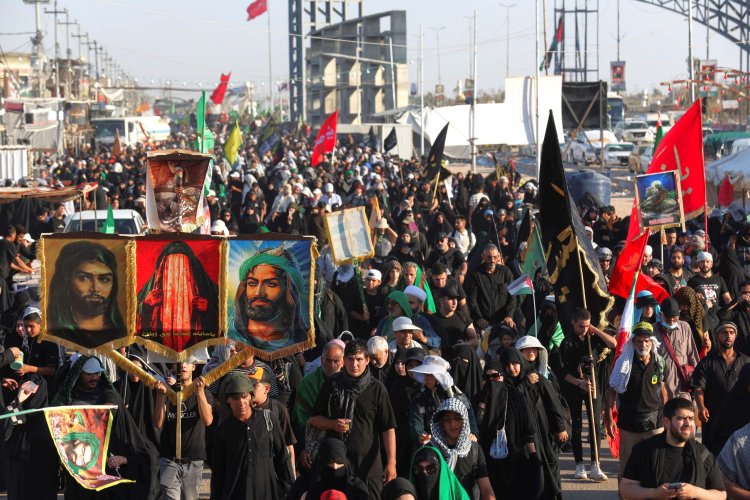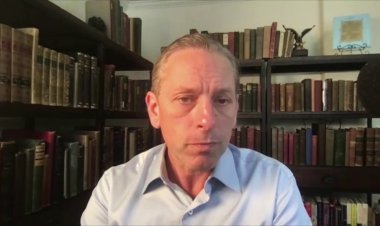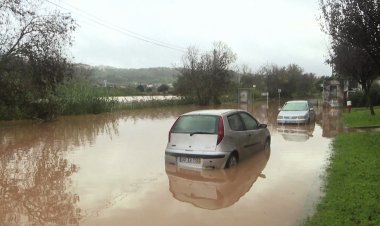Thousands of Pilgrims March to Karbala for Arbaeen

Thousands of pilgrims embarked on a days-long journey from Baghdad to Karbala ahead of Arbaeen.
Facing the sun and high August temperatures, Shi'ite devotees, some of which barefoot, walked finding comfort in the many stalls and tents set up on the way to provide them with food, water and a place to rest.
Coming from different parts of the country, once in Baghdad, pilgrims still have around 90 kilometers ahead of them to reach Karbala where Arbaeen will peak on August 25.
Arbaeen marks the end of a 40-day mourning period for the grandson of the Prophet Mohammad, Imam Hussein, killed in battle in 680.
The annual event draws millions of pilgrims from around the world; last year, 22 million attended, including many from neighboring Iran. Since 6 August, around 2.9 million pilgrims have entered Iraq, with the commemorations set to peak.
In a related development, Iraq's Interior Minister, Abdul Amir al-Shammari, announced that the number of arrivals to Iraq has reached 2.75 million.
Iraqi Prime Minister and Commander-in-Chief Mohammed Shia al-Sudani has issued directives to boost security readiness as the pilgrimage reaches its peak, stressing the importance of a swift response to any security breaches.
Al-Sudani also directed security forces to bypass routine procedures, maintain control over pilgrimage routes, and ensure the smooth transportation of pilgrims. He emphasized the need to maintain efforts until the pilgrimage concludes and to take strict measures against any violations.
As Karbala remains under heightened security measures, Iraqi security forces are extensively deployed throughout the city, conducting searches and monitoring pilgrim routes to ensure their safety and protect them from potential threats.
As Iraq continues to navigate the complexities of its security environment, the successful management of such large-scale religious gatherings remains a critical test of the country's stability and governance.















